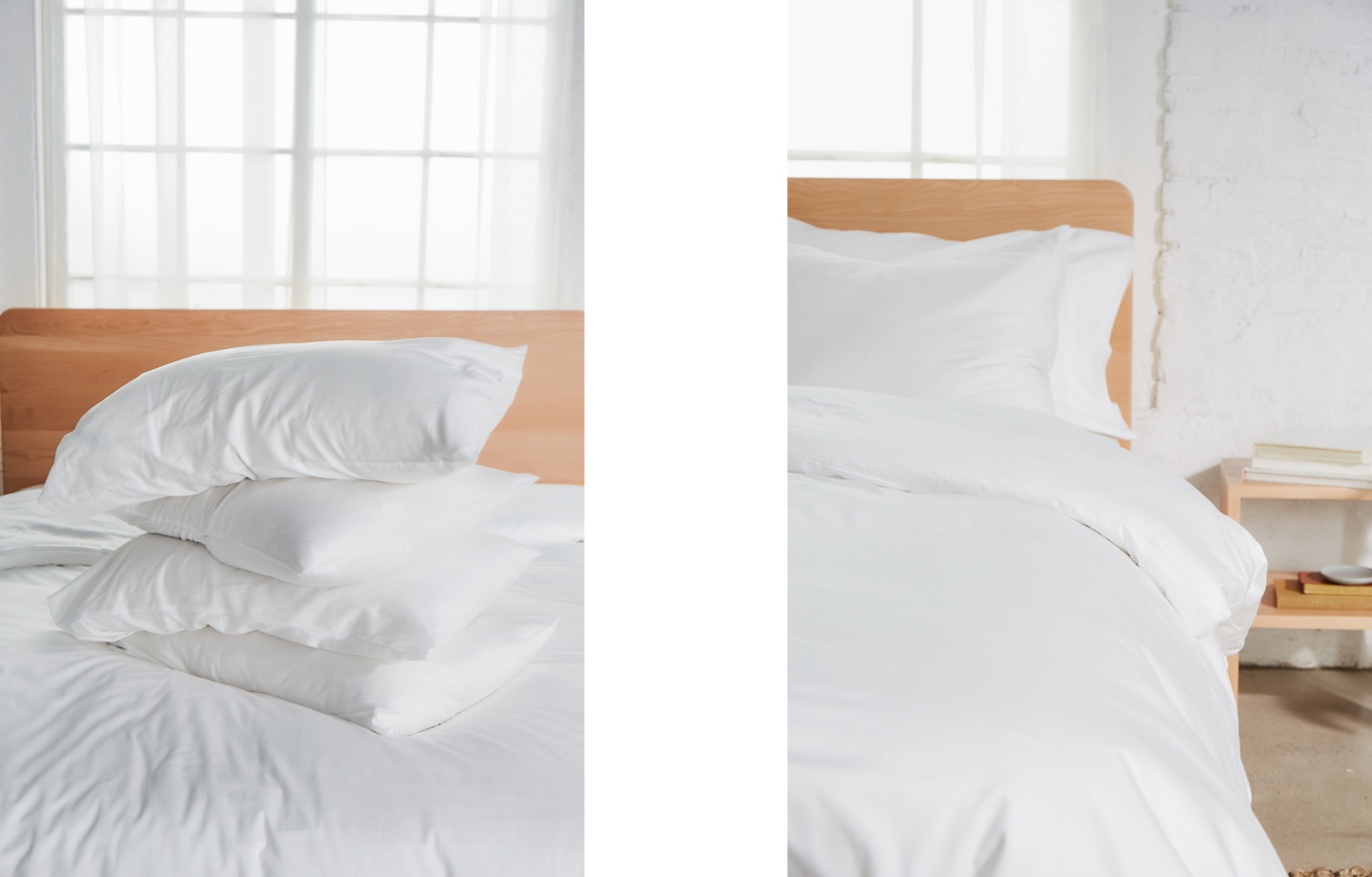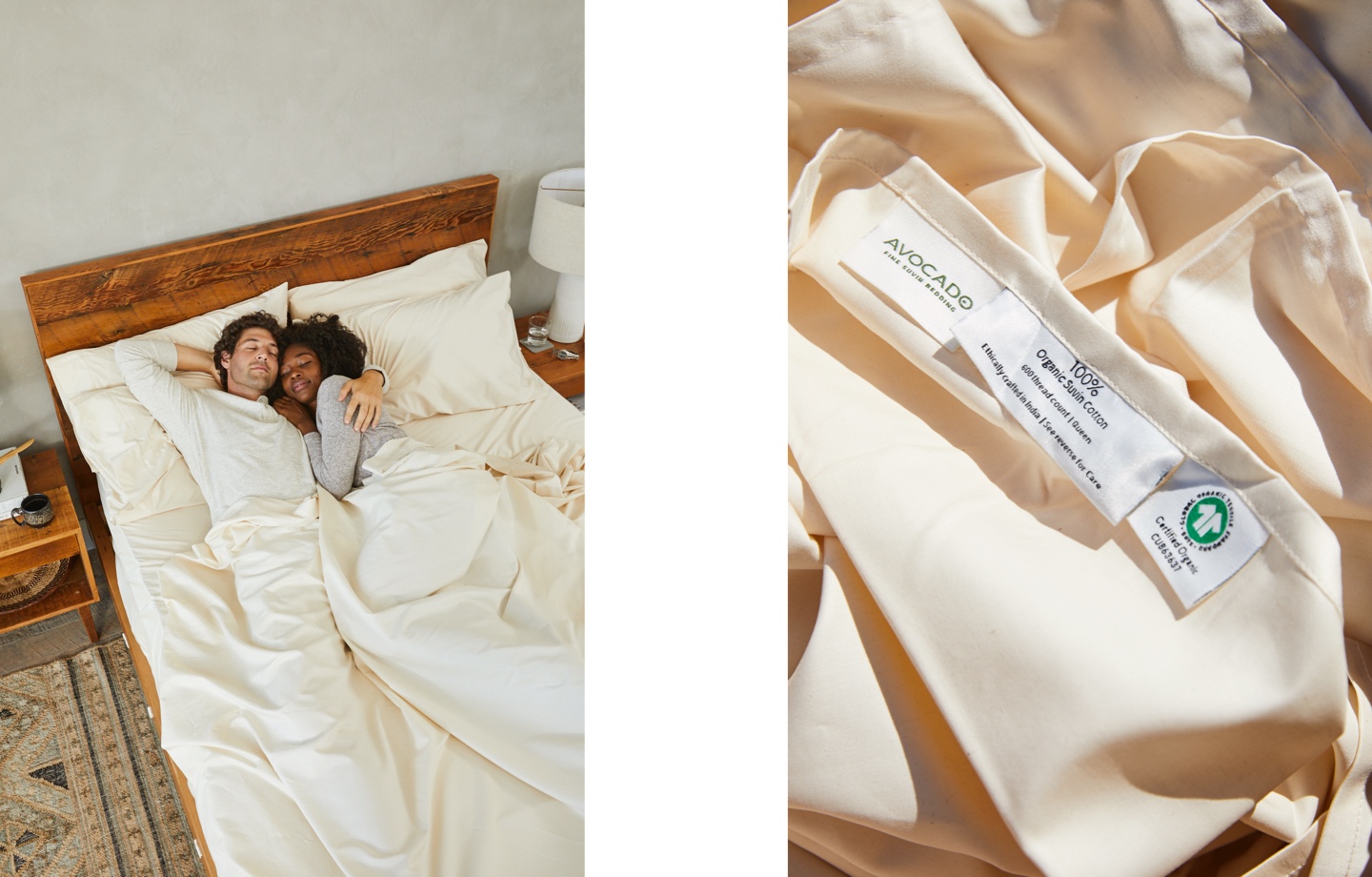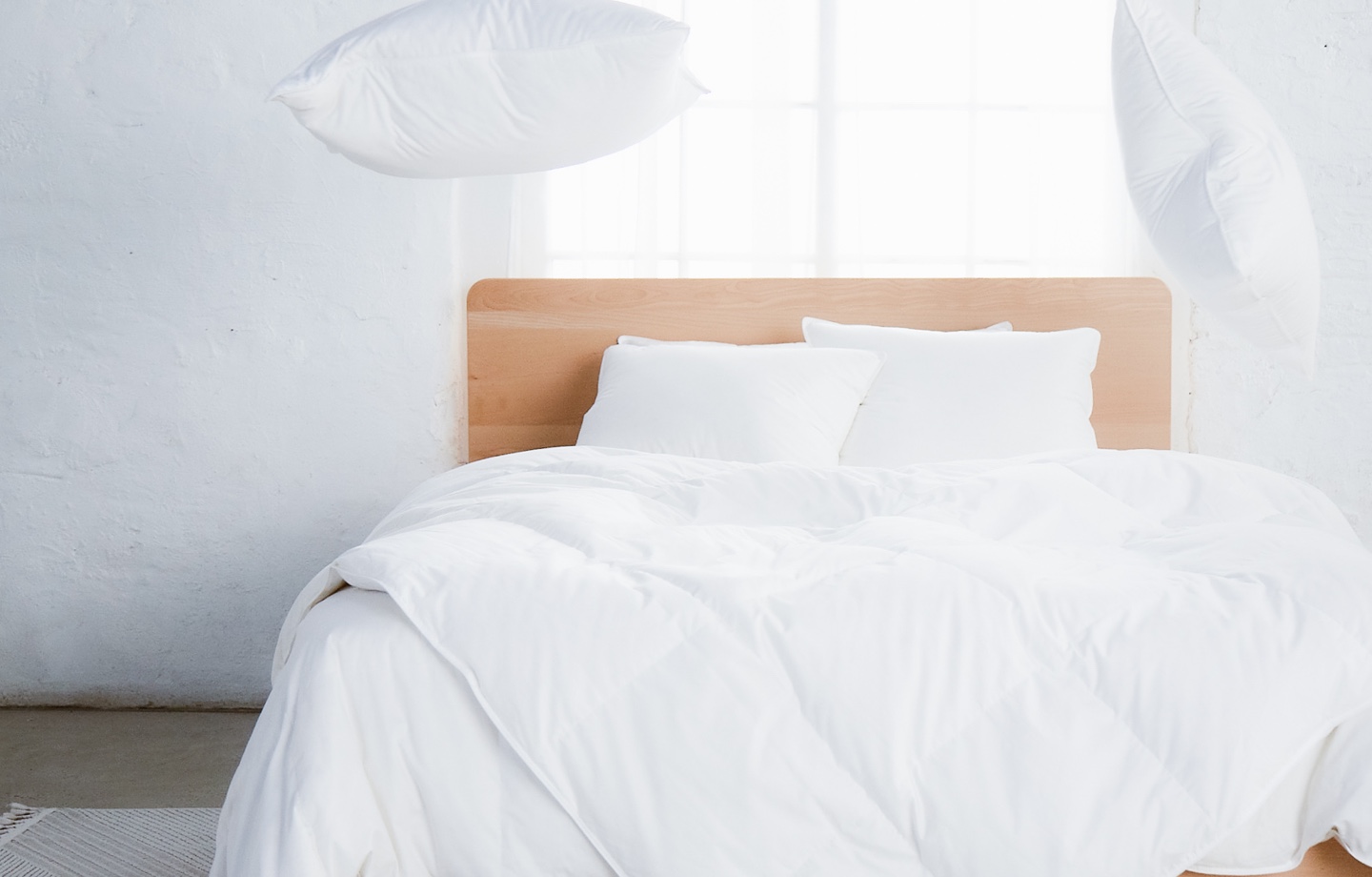Your thermostat could be affecting your slumber. A sleep physician shares how temperature affects sleep and how to find what works best for you.
You probably already know a few tricks for ensuring a good night’s rest: unplug from electronics, take your magnesium (we love a sleepy girl mocktail), and commit to a sleep schedule. But there’s another one to add to your lineup that could have a significant benefit for your zzz’s: Lower your bedroom thermostat.
Dialing down the temperature of your bedroom can improve both sleep duration and quality, and the latter is especially important for long-term health. In fact, poor sleep quality is linked to chronic diseases like heart disease and stroke. If you’re skeptical that how warm or cool your room is can influence how well you sleep, consider the last time you slept in a too-hot bedroom without air conditioning or even in a cold basement-level bedroom. Maybe you tossed and turned to feel comfortable in the warm bedroom or stayed up shivering in the cold one. These extreme temperatures can keep you from getting adequate sleep by making it hard to drift off or causing you to wake more frequently. And, as it turns out, there is such a thing as an optimal temperature for dreamland.
So, what’s the magic temp? And how exactly does it affect your body to promote better sleep? We talked to David Rosen, a sleep physician and founder of Renuma Sleep, to explore these and other questions.

Read more: Bedtime Mocktail Series: Sleep Tight Kiwi Chamomile
What’s the optimal temperature for good sleep?
Rosen says there is no one temperature that suits every person. However, he said most experts will suggest keeping the room you sleep in between 62 to 68 degrees Fahrenheit. When deciding what temp within that range to set your thermostat, consider factors like your own comfort level and what feels reasonable to you, all things considered. For instance, Rosen pointed out that cooling your room below 65 degrees may not feel realistic to someone who, say, doesn’t want their energy bill to increase substantially during warmer months. And if you live with a partner, you have to come to the right temperature together.
“I will often advise a range between 65 and 68 degrees, but also stress that you also don’t have to be a stickler about it,” Rosen said in an email. “As long as my patient comes away from the interaction understanding that we sleep better in a cooler temperature, I am pleased.”
Why do we sleep better at cooler temperatures?
This is because there’s a connection between sleep drive, melatonin production and temperature, Rosen said, though that connection isn’t well understood at this time.
What we do know is that a person’s temperature changes throughout a 24-hour period, Rosen said. That internal temp is warmer throughout the day and begins declining in the evening. That decline in body temperature coincides with the brain’s release of melatonin, a hormone that signals to the body that it’s almost time for sleep. Rosen said the connection between melatonin, body temp and sleep goes something like this: If the sleep environment is too warm, it will hinder that drop in the body temperature and perhaps disrupt the ensuing feeling of sleepiness.
Does this temperature impact sleep quality, sleep duration or both?
“Both,” Rosen said.

Read more: 6 Ways to Recover After A Bad Night of Sleep
How does being too warm hinder sleep?
If you’ve ever slept in a room without air conditioning on a summer night, then you know how tough it can be to drift off when it’s too warm. This struggle could be thanks to evolution. Humans are just not built for sleeping in warmer conditions, Rosen said, adding that sleep experts are still working to figure out the science behind it.
“Perhaps we’ve evolved that way since our species only relatively recently developed the luxury of temperature-controlled environments,” he said. “Before then, our bodies evolved to be accustomed to sleeping in colder temperatures and being active during the sunlit daytime in a warmer temperature.”
If a person sets the thermostat to 65°F but then piles on thick blankets or wears warm clothing to bed, are they negating the benefits?
If you share a bed with a partner, then you know the struggle of finding the Goldilocks temperature for your room. If your partner sleeps hot then there’s a chance you’ve tried to find a happy medium by piling on blankets or wearing heavy clothing. But Rosen said if the covers or clothing are too warm—to the point that you are sweating or feeling hot—then it’s probably negating the benefits of sleeping in a cold environment.
Is there a way to ease into sleeping in a cooler room if, say, your partner sleeps hot?
Rosen says creating the right sleeping environment is a negotiation with your partner. And it might take some creativity, like positioning a small fan to cool one partner without affecting the other or using different blankets made of different materials.
“It’s also not uncommon that partners decide to sleep in separate bedrooms, and that can sometimes improve the relationship since a well-rested individual will be a better partner,” he said. There are so many ways to cool off a night beyond dropping the thermostat — for instance, some people invest in cooling bedding. Is this backed by research? Do you have other tips for staying cool at night?
Rosen says the research here is limited. However, some easy things he does suggest: wear light clothing to sleep, set up a tower fan by your bed and use bedding made of a lighter material. (Hint: organic cotton, organic hemp, or organic linen).

Read more: How to Create A Sleep Sanctuary: 6 Tips For A Good Night’s Sleep
Have feedback on our story? Email [email protected] to tell us what you think!

Shop Pillows
The Essential Organic Pillow Collection
Gentle, breathable, non-toxic support.







